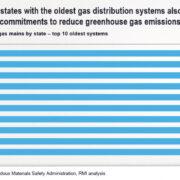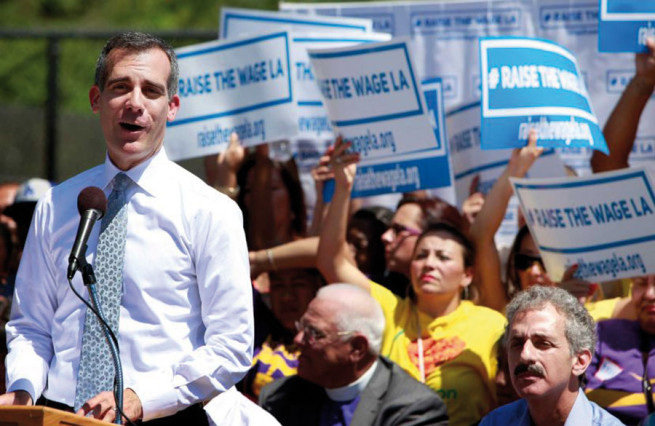THE Los Angeles City Council approved a long-awaited plan to increase the city’s minimum wage to $15 an hour. Under the plan, which passed on Tuesday, May 19, LA will increase its required wage year-by-year over the next five years to reach a minimum of $15 hourly by July 2020.
The council voted 14-1 on the ordinance, joining Los Angeles with major cities like Seattle and San Francisco in a campaign for boosting wages to reduce poverty and boost the standard of living for residents.
“Los Angeles, the second biggest city in the nation, is leading the nation,” said Councilman Paul Krekorian, who was instrumental in shaping the wage increase plan’s final form, largely approved by the Raise the Wage Coalition.
A key element of the act pegs yearly wage increases based on the consumer price index over the past two decades, which the council approved after past provisions failed to adjust the base pay for inflation.
Labor organizations and activists hope that California’s move towards a better minimum wage and standard of living will eventually reach the federal level, and overall improve the economy.
“We have to be a city that stands up for the working poor,” said City Councilwoman Nury Martinez.
The City Council’s plan to endorse the minimum wage hike will be submitted to the city attorney’s office, where Atty. Mike Feuer will draft an ordinance to implement the new requirements, and will return to the council for a final vote before becoming citywide law.
“The minimum wage should not be a poverty wage in Los Angeles,” commented LA Mayor Eric Garcetti.
Mixed reactions
The minimum wage hike measure no doubt affects Los Angeles’ businesses and community groups, many of which argue that the strategy will backfire with cuts in jobs and working hours. However, city officials behind the plan sought to incorporate provisions that would ease the wage hike’s impact on their own budgets.
Under the plan, small businesses with 25 workers or fewer will get an additional year to phase the increases. Nonprofits that meet certain requirements could also ask permission to do the same.
A survey of the restaurant industry in Los Angeles by the Employment Policies Institute (EPI) suggested that the wage hike would have a major impact on small food service businesses in the city, leading some of them to relocate, downsize, or even close down.
Among respondents, 73 percent of small restaurant business owners said that the wage hike would result in a “large” increase in their labor costs, and would only compound these increases. 24 percent said they would be “very likely” to close their business, 50 percent said they would be “very likely” to reduce employee hours or their own hours of operation, and 42 percent said they would be “very likely” to lay off employees or otherwise reduce staffing. In addition, 33 percent of the full-service restaurants said they would be “very likely” to eliminate tipping altogether in favor of some combination of much higher menu prices and a service charge, if the new minimum wage does not recognize tips as income.
“Los Angeles lawmakers are charging ahead with a 67 percent minimum wage hike following biased research and with their blinders on,” said Michael Saltsman, research director at the Employment Policies Institute. “Rather than taking the word union-backed academics, legislators should pause and seek feedback from real small business owners about the significant impacts this policy will have.”
Many of the small businesses owners surveyed called the new wage rates “unmanageable” and “drastic.”
Filipino local community groups, however, shared a different viewpoint in support of businesses and implementing the wage increase.
Pilipino Workers Center of Southern California said the measure’s passage is “a great development for Los Angeles…and an economic boost for the overall economy.”
“Los Angeles is the wage theft capital of the US, where low-wage workers are robbed of $26 million each week. This policy will move in the right direction of rectifying the problem. Raising the minimum wage and lowering the incidence [of wage theft] will put more money in the pockets of workers and families who will in turn use it in the local economy,” said Aquilina Soriano Versoza, Executive Director of PWC.
The Filipino Migrant Center (FMC) also celebrated the decision, calling the ordinance a “landmark victory” and applauding the groups who fought hard—and often passionately in the courts—to make it happen.
“An increase in the minimum wage will significantly improve the livelihood of thousands of Filipino families in LA,” said Joanna Concepcion, Executive Director of the FMC, in a written statement. “A significant percentage of Filipino families send money to family members in the Philippines to support for their basic needs like tuition fees, housing and utilities, medical care and food costs, all of which are also on the rise. For many, the increase could mean not having to work two or three jobs and more time spent with family and loved ones, or being able to finally set aside money for savings or emergency.”
FMC also recognized the need for stronger enforcement of the measure, pointing out regular labor violations of immigrant workers—often undocumented—being severely underpaid or denied overtime. “We commend our community partners who have pushed hard to demand that stronger wage theft enforcement standards be included in the policy to increase the minimum wage so employers will not be able to get away for violating the law.”
Both PWC and FMC promise to help hard-working families, especially immigrants, obtain access to the proper resources to inform and protect their rights as employees. FMC hosts a monthly workers’ rights legal clinic, educational workshops, and free legal consultation for those who work in vulnerable industries. PWC also offers similar educational planning workshops for business owners; to better help them transition to the new ordinances in employee wages.
“Raising the minimum wage and creating stronger wage theft laws will help lift many out of poverty in Los Angeles,” said Versoza. “And that is the Los Angeles that I want to live in.”
(www.asianjournal.news)
(LA Weekend May 23-26, 2015 Sec. A pg.1)









